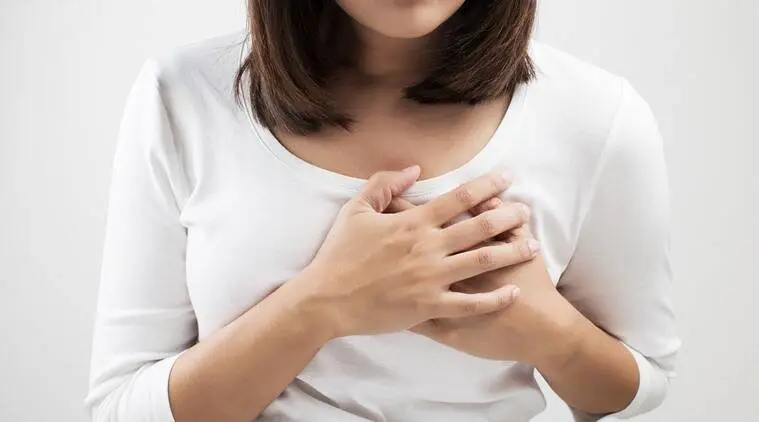The Leading Causes of Heart Disease

What You Need to Know
Your heart is a powerful muscle that works tirelessly through every second of your life. That’s why heart failure is such a serious, long-term chronic condition.
Heart disease is more likely to happen as you age, but anyone can develop heart issues. If you ever experience heart failure, you still can live a full and active life with the right medical treatment and lifestyle adjustments.
But what causes heart disease?
We’ve put together a list of the main culprits of heart issues and the symptoms for each condition to help you recognize if something’s not right with your ticker.
Cause: Blood vessel disease
“There are many causes of heart disease,” according to Jean Ekwenibe, MD, a heart and vascular specialist at Adena. “The most common, according to the Centers of Disease Control and Prevention is coronary artery disease (CAD). CAD is due to atherosclerosis (a significant plaque buildup/cholesterol deposits) present in the heart arteries that causes reduced blood flow to the heart muscle. This can result in heart attacks and/or heart failure overtime if not treated.”
Unhealthy lifestyle habits, such as a poor diet, lack of exercise, being overweight and smoking can also lead to coronary artery disease.
Signs and symptoms can include:
- Pain in the neck, jaw, throat, upper abdomen or back
- Pain, numbness, weakness or coldness in your legs or arms
- Pain, tightness, pressure and discomfort in the chest
- Shortness of breath
Cause: Heart rhythm problems (arrhythmias)
Your heart may beat too quickly, too slowly or irregularly. Common causes of arrhythmias can include:
- Coronary artery disease
- Diabetes
- Drug abuse
- Excessive use of alcohol or caffeine
- Heart defects you're born with
- High blood pressure
- Smoking
- Some over-the-counter medications, prescription medications, dietary supplements and herbal remedies
- Stress
- Valvular heart disease
Heart arrhythmia signs and symptoms can include:
- Chest pain or discomfort
- Dizziness
- Fainting or near fainting
- Fluttering in your chest
- Lightheadedness
- Racing heartbeat
- Shortness of breath
- Slow heartbeat
Cause: Heart defects
Congenital heart defects usually develop while you’re still a baby in the womb. Heart defects can develop as the heart develops, about a month after conception, changing the flow of blood in the heart. Some medical conditions, medications and genes may also play a role in causing heart defects.
Heart defects can develop in adults, too. As you age, your heart's structure can change, causing a heart defect.
Signs and symptoms in children could include:
- Pale gray or blue skin color
- Shortness of breath in infants during feedings, leading to poor weight gain
- Swelling in the legs, abdomen or areas around the eyes
Less serious congenital heart defects are often not diagnosed until later in childhood or during adulthood. Signs and symptoms include:
- Easily tiring during exercise or activity
- Shortness of breath during exercise or activity
- Swelling in the hands, ankles or feet
Cause: Heart valve disease
Your heart has four valves: the aortic, mitral, pulmonary and tricuspid valves. These valves open and close to direct blood flow through your heart. Your heart valves can become damaged, leading to narrowing (stenosis), leaking (regurgitation or insufficiency) or improper closing (prolapse).
Disease to your heart valves can occur for many reasons. You may be born with valvular disease, or the valves may be damaged by conditions such as:
- Connective tissue disorders
- Infections
- Rheumatic fever
Valve-related heart disease signs and symptoms generally include:
- Fatigue
- Shortness of breath
- Irregular heartbeat
- Swollen feet or ankles
- Chest pain
- Fainting
Cause: Disease of the heart muscle
Also known as cardiomyopathy, this is a thickening or enlarging of the heart muscle. There are three types:
- Dilated cardiomyopathy - may be caused by reduced blood flow to the heart (ischemic heart disease) resulting from damage after a heart attack, infections, toxins and certain drugs, including those used to treat cancer. It may also be inherited from a parent.
- Hypertrophic cardiomyopathy - is usually passed down through families or develops over time because of high blood pressure or aging.
- Restrictive cardiomyopathy - can occur for no known reason or may be caused by diseases, such as connective tissue disorders or the buildup of abnormal proteins.
Diseased heart muscles can cause:
- Breathlessness with activity or at rest
- Swelling of the legs, ankles and feet
- Fatigue
- Irregular heartbeats that feel rapid, pounding or fluttering
- Dizziness, lightheadedness and fainting
Cause: Heart infection
Also known as endocarditis, a heart infection affects the inner lining of your heart chambers and heart valves A heart infection is caused when germs reach your heart muscle. The most common causes of heart infection include bacteria, parasites and viruses.
Signs and symptoms can include:
- Fever
- Shortness of breath
- Weakness or fatigue
- Swelling in your legs or abdomen
- Changes in your heart rhythm
- Dry or persistent cough
- Skin rashes or unusual spots
Talk to your doctor
If you’re worried about heart disease, have a conversation with your health care provider. Certain types of heart disease, such as heart defects, can't be prevented. However, the same lifestyle changes that can improve your heart disease can also help you prevent them altogether.
“It is important for patients with any of the common risk factors for heart disease to see their primary physician or a cardiologist for screening,” says Dr. Ekwenibe. “Your doctor will be able to perform an exam and order blood work or testing to determine your risk for cardiovascular disease. If treatment is needed and initiated early, it will help reduce the chance of a patient suffering a cardiac event such as a heart attack in the future.”